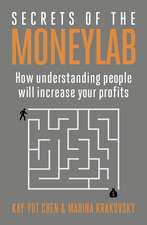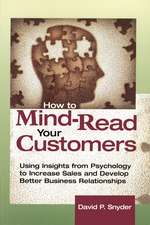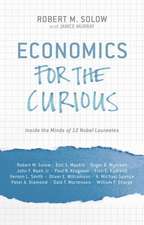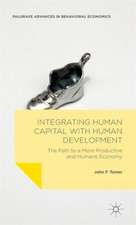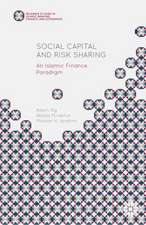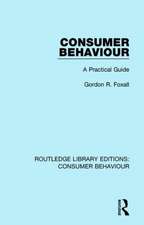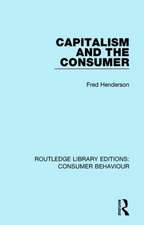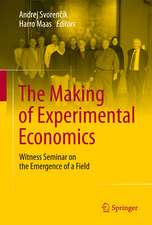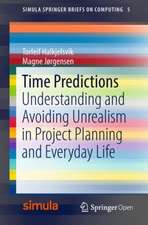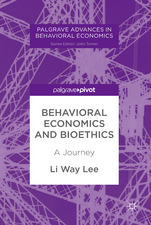Behavioral Economics: Moving Forward
Autor Fabrizio Ghisellini, Beryl Y. Changen Limba Engleză Hardback – 23 iul 2018
Crucial reading for researchers and students looking for insights into the many unsolved problems of economics.
| Toate formatele și edițiile | Preț | Express |
|---|---|---|
| Paperback (1) | 777.20 lei 6-8 săpt. | |
| Springer International Publishing – 8 ian 2019 | 777.20 lei 6-8 săpt. | |
| Hardback (1) | 785.86 lei 6-8 săpt. | |
| Springer International Publishing – 23 iul 2018 | 785.86 lei 6-8 săpt. |
Preț: 785.86 lei
Preț vechi: 958.37 lei
-18% Nou
Puncte Express: 1179
Preț estimativ în valută:
150.37€ • 157.00$ • 124.45£
150.37€ • 157.00$ • 124.45£
Carte tipărită la comandă
Livrare economică 05-19 aprilie
Preluare comenzi: 021 569.72.76
Specificații
ISBN-13: 9783319752044
ISBN-10: 3319752049
Pagini: 221
Ilustrații: XIII, 234 p. 31 illus., 23 illus. in color.
Dimensiuni: 148 x 210 x 26 mm
Greutate: 0.55 kg
Ediția:1st ed. 2018
Editura: Springer International Publishing
Colecția Palgrave Macmillan
Locul publicării:Cham, Switzerland
ISBN-10: 3319752049
Pagini: 221
Ilustrații: XIII, 234 p. 31 illus., 23 illus. in color.
Dimensiuni: 148 x 210 x 26 mm
Greutate: 0.55 kg
Ediția:1st ed. 2018
Editura: Springer International Publishing
Colecția Palgrave Macmillan
Locul publicării:Cham, Switzerland
Cuprins
Part I: How did we get here?.- Chapter 1: Introduction to Part I.- Chapter 2: Does conventional economics fit reality?.- Chapter 3: The behavioral alternative.- Part II: moving forward: seven businesses to finish.- Chapter 4: Introduction to Part II.- Chapter 5: How many real biases are there?.- Chapter 6: How do people form expectations in the real world?. Chapter 7: Time and preferences.- Chapter 8: Rationality: An inferiority complex?.- Chapter 9: The problem with behavioral finance.- Chapter 10: Should biased nudgers nudge us?.- Chapter 11: What we talk about when we talk about behavioral economics.
Recenzii
Selected by Choice magazine as an Outstanding Academic Title for 2019
“This book is a must read for anyone interested in behavioral economics. … Behavioral economics is then an approach to economic analysis that enriches the explanation of decision-making by applying psychological insights. The bibliographies at the end of each chapter are thoughtful, and the authors provide insightful ‘hints’ to future work that needs to be done.” (M. H. Lesser, Choice, Vol. 56 (6), February, 2019)
“This book is a must read for anyone interested in behavioral economics. … Behavioral economics is then an approach to economic analysis that enriches the explanation of decision-making by applying psychological insights. The bibliographies at the end of each chapter are thoughtful, and the authors provide insightful ‘hints’ to future work that needs to be done.” (M. H. Lesser, Choice, Vol. 56 (6), February, 2019)
Notă biografică
Fabrizio Ghisellini is a member of the Advisory Board of the Center for Monetary and Financial Studies of LUISS University, Rome, Italy, and was previously Director for Financial Operations at the Ministry of the Economy and Finance, Italy. He runs courses in behavioral economics in various Italian universities and is the author of many books, exploring areas such as behavioral factors affecting household investment choices.
Beryl Y. Chang is Professor of Economics at New York University, USA, and served as an economist for risk performance of large credit and investment portfolios with major banks in the United States and as a consultant for international institutions. She has given a seminar course in behavioral economics and finance at Columbia University, USA, and is a published author and referee for numerous journals in areas of applied micro and macroeconomics, interdisciplinary/behavioral economics, international and financial economics, industrial organization, and risk management. Chang is also a concert violinist.
Textul de pe ultima copertă
This book sets the agenda to turn behavioral economics, which has long been considered a subordinate discipline, into mainstream economics. Ghisellini and Chang expose the conceptual and empirical inadequacy of conventional economics using illustrations of real world decision-making in a dynamic environment, including evidence from the global financial crisis. With a rigorous yet accessible style, they give a comprehensive overview of behavioral economics and of the current state of play in the field across different schools of thought. Seven major conceptual problems still affecting the development of behavioral economics are identified and the authors propose research avenues to address these issues and allow the discipline to receive its long-awaited recognition.
Crucial reading for researchers and students looking for insights into the many unsolved problems of economics.
Caracteristici
Reviews the pillars of conventional and behavioral economics Presents in-depth analysis of problem areas in behavioral economics and solutions Offers a compact overview of expert opinions on the most controversial issues in academic debate, written in a non-technical way


